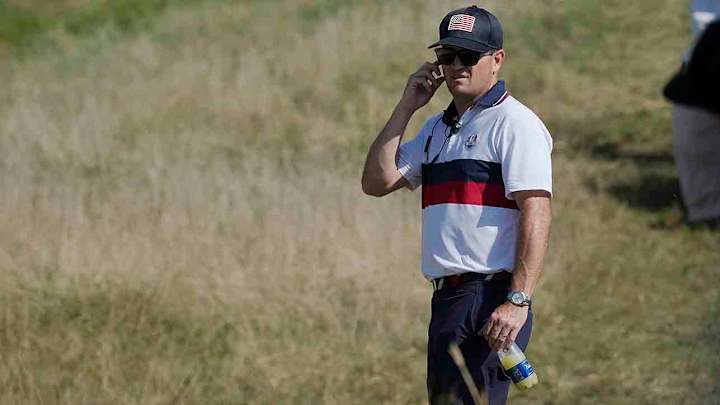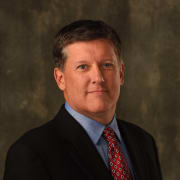Taking One More Look at the Criticisms of U.S. Ryder Cup Captain Zach Johnson

More Weekly Read: Hatless Cantlay endures | Framework agreement delay
It comes with the territory. When you lose the Ryder Cup, the captain is going to take some heat. All of his decisions will be analyzed, some to the extreme. Zach Johnson is on the tough end of that fate today, and there have been all manner of Monday-morning quarterbacking of what occurred.
First, it’s important to step back and recognize that this isn’t managing a baseball team or coaching a football team. It’s not a season-long endeavor that gives a better indication of the overall approach. If the Ryder Cup were played every weekend for a month, the captain’s decisions would be far more easy to assess.
And there can be only one winner and one loser (or a tie). There is no finishing second or with a winning record or any way to feel good about anything other that winning the Cup, which in other sports is not necessarily the case.

Instead, it’s a three-day competition that leaves little time for adjustment. Half the team is decided for him. And in the current state of U.S. Ryder Cup protocol, the team is decided with input from past captains and current players.
With that in mind, it’s worth another look at the various criticisms.
> Captain’s Picks: This is the lowest-hanging fruit, and the easiest to criticize in hindsight. Full disclosure: in advance of Johnson’s picks on Aug. 29, I had advocated for Keegan Bradley over Sam Burns, who went 1-2. None of the six picks had a winning record. Rickie Fowler went 0-2, Jordan Spieth 0-2-2, Justin Thomas 1-2-1, Collin Morikawa 1-3. Brooks Koepka, at 1-1-1, was the only pick who didn’t have a losing record.
The biggest focus was on Thomas and Burns, and certainly their picks were controversial.
But to suggest that Cam Young or Lucas Glover or Dustin Johnson or Bryson DeChambeau or Tony Finau would have been better is quite the reach. Nobody knows. Every possible pick had flaws. Thomas was chosen for his past Ryder Cup prowess, just as Dustin Johnson would have been. Nobody knows if it would have made a difference.
> Lack of Tournament Play: Each of the 12 members of the European team played at the BMW PGA Championship at Wentworth two weeks prior to the Ryder Cup. Only two members of the U.S. team played in the five weeks between the Tour Championship and the Ryder Cup. Clearly there is an argument to be made that the European players were sharper. It’s a fair point—in retrospect. Why? Because there was no issue about the break on the U.S. side until the team played poorly.
Thomas played at the Fortinet as did Max Homa, who only went out of obligation: he was the defending champion. The narrative coming out of the Tour Championship was that after a busy end to the season including a three-tournament playoff swing in hot, humid conditions, the players needed a break—and that it was the Europeans who might suffer by actually playing more.
Obviously it didn’t work out that way. In some places, it was suggested that the U.S. team should have gone to Wentworth, which sounds good but wasn’t realistic. It would heave meant three weeks in Europe with a week between events, hardly ideal. All of the European team members are also members of the DP World Tour. It made sense for them to play the tour’s flagship event.
Could the U.S. players have gone to the Fortinet? Perhaps it would have helped given the results. But nobody was calling for it prior to the Ryder Cup, only after the team was in the throes of playing poorly.
> Skipping the Italian Open: This is a disingenuous argument. It was suggested that the U.S. team should have made an effort to play the DP World Tour stop, thus having a chance to learn the course in tournament conditions. Sounds great, except this year it was scheduled opposite the Wells Fargo Championship, a designated event on the PGA Tour that nobody was going to skip to play in Italy. McIlroy played it. Rahm skipped it and didn’t play the Italian Open. The Italian Open was also played last fall—the week prior to the Presidents Cup. The idea that any U.S. player would play Marco Simone during those weeks was a ridiculous expectation.
> Preparation at Marco Simone: The U.S. team visited Marco Simone two weeks in advance of the Ryder Cup, spending two days on-site. By all indications, the trip was worthwhile, as nine of the 12 players went. They learned the course, figured out yardages and clubs, studied strategy. That meant when they arrived for the week of the Ryder Cup, the heavy lifting was done.
But did that mean they didn’t quite grind as hard as necessary during practice rounds? While the European team was playing three-hole matches, the American players seemed to be causally getting ready. The idea was to not over-exert in the heat, a reasonable plan. Practice rounds were limited to nine holes, and it’s fair to wonder if they put in the necessary work on-site leading up to the tournament. Not only were the Americans out of sorts on the first day, they appeared woeful on the greens. Was that due to the days leading up to the Ryder Cup? It’s fair to wonder. And when you consider that the first-day deficit of 6½ to 1½ ended up being the final five-point deficit, that first day turned out to be a huge difference overall.
> Pairings and Order: This is probably the place where you can quibble with Johnson the most. Surely he and his assistants had to know that Scottie Scheffler, the No. 1-ranked player in the world who went 0-2-2, wasn’t quite the same. And yet they put him off in the first match of the foursomes session each day.
If you’re going to ride the idea that Thomas is your fearsome leader, why not put him out right away? Why was Brooks Koepka, five-time major winner, not playing the first session? Why did Thomas and Spieth get another crack at foursomes on Saturday? Why did they get two matches Saturday, especially given some of Spieth’s struggles?
These strategical areas are where the most scrutiny is deserved. They are actual decisions in the moment that might have helped change the outcome.
In the end, there is only so much a captain can do. Those who win get praised, those who don’t get criticized.
